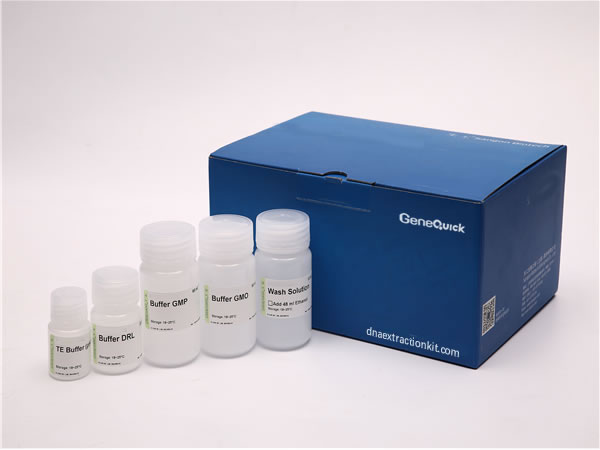What is Agricultural DNA Extraction Kit for Plant Roots?
The Agricultural DNA Extraction Kit for Plant Roots is a specialized laboratory tool designed to isolate high-quality DNA from root samples of various plant species. This kit streamlines the process of extracting genetic material from complex root tissues, which often contain challenging compounds like polysaccharides and polyphenols that can interfere with downstream molecular analyses. By providing optimized reagents and protocols, it enables researchers and agricultural professionals to obtain pure DNA suitable for PCR, sequencing, and other genetic studies focused on root biology, plant health, and soil interactions.
Root systems play a critical role in plant growth, nutrient uptake, and response to environmental stresses, making their genetic analysis essential for advancements in agriculture and botany. This kit is tailored to handle the unique composition of root tissues, ensuring efficient DNA recovery without degradation. It is widely used in agricultural research, crop improvement programs, and environmental monitoring to study root-associated microbes, genetic traits, and plant-pathogen interactions.

Technical Specifications
| Model | Method | Sample | Application | Format | Workflow |
|---|---|---|---|---|---|
| AG-C-ROO-20R | Column | Root | Agriculture | 20R | Manual |
| AG-C-ROO-50R | Column | Root | Agriculture | 50R | Manual |
| AG-C-ROO-100R | Column | Root | Agriculture | 100R | Manual |
| AG-C-ROO-200R | Column | Root | Agriculture | 200R | Manual |
| AG-C-ROO-8R | Column | Root | Agriculture | 8R | Semi-automated or Full Automation |
| AG-C-ROO-24R | Column | Root | Agriculture | 24R | Semi-automated or Full Automation |
| AG-C-ROO-48R | Column | Root | Agriculture | 48R | Semi-automated or Full Automation |
| AG-C-ROO-72R | Column | Root | Agriculture | 72R | Semi-automated or Full Automation |
| AG-C-ROO-96R | Column | Root | Agriculture | 96R | Semi-automated or Full Automation |
Working Principle
The principle behind the Agricultural DNA Extraction Kit for Plant Roots involves a combination of mechanical and chemical methods to break down the tough cell walls of root tissues and release DNA. Initially, samples are lysed using a buffer that disrupts cellular structures and inactivates nucleases, preventing DNA degradation. This is followed by the addition of reagents that precipitate impurities and isolate the DNA through binding to a solid matrix, such as silica columns or magnetic beads, depending on the kit variant.
Purification steps then wash away contaminants like polysaccharides and phenolic compounds, which are common in roots and can inhibit downstream processes. Finally, the DNA is eluted in a buffer that stabilizes it for storage or immediate use. This principle ensures high purity and yield by leveraging specific biochemical interactions tailored to the challenges of root tissue composition.
Performance
The Agricultural DNA Extraction Kit for Plant Roots delivers reliable performance with high DNA yield and purity, even from difficult root samples that may be woody, fibrous, or rich in secondary metabolites. It efficiently removes contaminants such as humic acids, proteins, and carbohydrates, resulting in DNA that is ideal for sensitive applications like next-generation sequencing and quantitative PCR. Users can expect consistent results across multiple root types, from delicate herbaceous roots to tougher perennial systems, thanks to the kit's optimized buffer formulations and purification steps.
Performance is validated through rigorous testing, demonstrating that the extracted DNA maintains integrity and is free from inhibitors that could affect molecular workflows. This ensures that researchers can trust the kit for reproducible data in studies involving root genomics, microbiome analysis, and genetic engineering, supporting advancements in sustainable agriculture and plant science.
Application
This kit is primarily applied in agricultural and botanical research for extracting DNA from plant roots to investigate genetic diversity, disease resistance, and nutrient efficiency. It is used in studies of root-microbe interactions, such as those involving mycorrhizal fungi or nitrogen-fixing bacteria, which are crucial for soil health and crop productivity. Additionally, it supports applications in plant breeding programs, where DNA from roots is analyzed to select for traits like drought tolerance or improved root architecture.
Beyond research, the kit finds use in environmental monitoring and conservation efforts, enabling DNA extraction from root samples to assess plant species in ecosystems or detect pathogens in agricultural fields. It is also valuable in educational settings for teaching molecular techniques related to plant biology, providing students with hands-on experience in DNA isolation from real-world samples.
Core Features and Advantages
The core features of this kit include optimized lysis buffers for efficient breakdown of root cell walls, inhibitors removal agents to handle complex matrices, and a user-friendly protocol that minimizes hands-on time. It offers scalability, allowing processing of multiple samples simultaneously, and compatibility with automated systems for high-throughput applications. The kit is designed to be robust, working effectively across a wide range of plant species and root types, from annual crops to perennial trees.
Advantages include high DNA purity, which reduces the need for additional clean-up steps, and consistency in results, making it a reliable choice for both research and diagnostic purposes. Its ability to extract DNA from minute or degraded root samples enhances its utility in field studies and archival research, supporting long-term agricultural projects and biodiversity assessments.